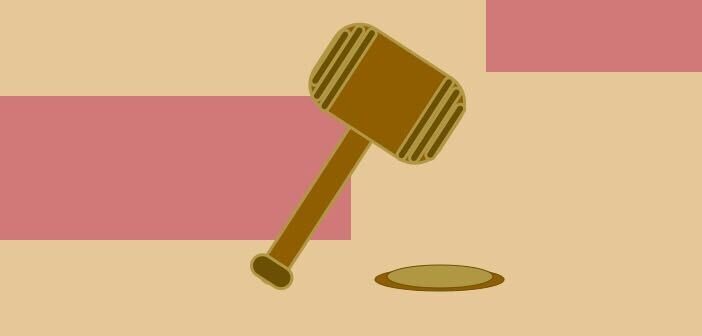The thought crossed my mind the other day, randomly.

Jordan Wolman
In my efforts to best serve the public, I thought we should explore this topic together. Could this idea of Lehigh turning into a — gasp! — democracy be beneficial to our campus community?
If Lehigh was a democracy, would Board of Trustees meetings be more open, and would the campus community generally have a better idea of how the university is governed?
Once, in a conversation with a senior administrator, the administrator let it slip to me that this person was preparing for an upcoming board meeting, in which the administrator was asked to make a presentation in front of the trustees. Naturally, I straightened up and, fighting back a smirk, I asked a few follow up questions.
“What goes on at these meetings?” I asked. I felt like a naive child, tugging at my parents to let me into the adult conversation.
The administrator laughed at my curiosity, telling me that these meetings are not nearly as exciting as I might think and mostly involve updates from faculty members and administrators about the happenings on campus. The administrator told me opening up these meetings would mostly just be for optics.
It occurred to me that yes, perhaps it would be for optics. But then again, optics is a big part of this. In politics, optics is everything. You see, the simple feeling that the campus community is shut out from the major decisions of the university is powerful enough.
Publishing the Board of Trustees’ by-laws isn’t the same as seeing it in action. It’s not the same as witnessing a debate about the issues of the day, and it’s certainly no replacement for a public comment period, for example.
I know, I know. This isn’t the way institutions work. The Board of Trustees need that separation, that layer of removal from the day-to-day operations in order to see long-term. But if Lehigh was a democracy, would its board members listen to its shareholders?
I’m very quickly reminded by friends, family, professors and classmates: “Make no mistake,” they say, “Lehigh is a business.”
So if we’re going to think of this as a business, let’s think of this as a business. Lehigh may be listed as a nonprofit educational institution in the U.S. tax code, but Lehigh is a corporation. And I don’t even mean that in a bad or negative way. We need private enterprise, competition and innovation to power this country.
But, if Lehigh is a business, the same principles of corporate boardrooms around the country are applicable. Students are Lehigh’s shareholders. We pay the bills. We fund this nonprofit-corporation with our tuition dollars and later on, with our alumni contributions.
It turns out, even if it’s just “optics,” institutions around the country — like George Washington University and the University of Pennsylvania — recognize that the shareholders deserve a mechanism to express their opinions and hold their administration accountable. I would point out that both GWU and UPenn are private universities.
But, if by this point you, dear reader, are feeling left out, shut down, excluded — don’t take it personally. If it’s any solace, know that Lehigh wouldn’t answer any questions related to the board’s investment decisions even by an outside agency focused on scoring and rating colleges and universities nationwide on sustainability metrics.
Now that we’re thinking in broad terms, let’s get practical.
If Lehigh was a democracy, would President Donald Trump still hold an honorary degree from our university? The answer is most certainly a resounding “no.”
I can confidently draw that conclusion based on the numbers. Two years ago, 357 out of 472 eligible Lehigh faculty members voted on whether the university should rescind Trump’s honorary degree, which was awarded to him after speaking at Lehigh’s commencement ceremony in 1988. Of those 357 faculty members, 83 percent said Lehigh’s Board of Trustees should rescind the honorary degree on the charge that Trump has violated Lehigh’s “Principles of Equitable Community.” The Student Senate also supported the motion.
The board set a precedent when it rescinded Bill Cosby’s honorary degree in 2015.
Now, surely, there are also problems that would arise if Lehigh governed more democratically, especially if positions like the president and provost were elected by the campus community. We want the best person for the job based on merit, not by popularity. Elections can and do turn into a series of photo ops and one-liners, and I’m under no illusion the same wouldn’t occur right on our own campus.
A true system of majoritarian rule may not make sense. After all, our Founding Fathers thought the same about our country as a whole. America, with its Citizens United ruling, its gerrymandering, its voter suppression, its Electoral College, is not a true democracy anyhow.
Look no further than the results of the most recent presidential election as proof.
But would a campaign for president at Lehigh make the candidates, including the incumbent, more willing (along with other administrators) to answer interview requests from The Brown and White and questions from the community at large in order to come off as relatable, genuine and honest?
Would accountability in the form of an election by the campus community — not a fluffy contract from the board with job offers and extensions privy to an unknown set of criteria — have made Lehigh’s administration more careful and less apt to blunders like the housing crisis just 18 months ago?
While I applaud Lehigh’s efforts to include more minority and first-generation students, would the university be growing its student body by 1,000 students over 10 years while academic departments and staff offices scrape their budgets and stress their personnel to respond to more students, more parents, more needs? Would those departments wonder when the Go Campaign funds will finally trickle down to them?
Imagine Lehigh as a democracy. It’s easy if you try.
Jordan Wolman is a managing editor for The Brown and White. He can be reached at jmw221@lehigh.edu.






Comment policy
Comments posted to The Brown and White website are reviewed by a moderator before being approved. Incendiary speech or harassing language, including comments targeted at individuals, may be deemed unacceptable and not published. Spam and other soliciting will also be declined.
The Brown and White also reserves the right to not publish entirely anonymous comments.
3 Comments
Note: The National Popular Vote bill is 73% of the way to guaranteeing the majority of Electoral College votes and the presidency to the candidate who receives the most popular votes in the country, by changing state winner-take-all laws (not mentioned in the U.S. Constitution, but later enacted by 48 states), without changing anything in the Constitution, using the built-in method that the Constitution provides for states to make changes.
It requires enacting states with 270 electoral votes to award their electoral votes to the winner of the most national popular votes.
All voters would be valued equally in presidential elections, no matter where they live.
Candidates, as in other elections, would allocate their time, money, polling, organizing, and ad buys roughly in proportion to the population
Every vote, everywhere, for every candidate, would be politically relevant and equal in every presidential election.
No more distorting, crude, and divisive red and blue state maps of predictable outcomes, that don’t represent any minority party voters within each state.
Tyranny of the majority is a fantastic idea in a country where 44% of the households already pay no federal income tax and politicians run on promising more free stuff to people with other people’s money.
I leave it to a government major to decipher what type of government Lehigh is, but democracy is thought by many to be dangerous. In small doses it may be ok such as a fraternity determining its own path, maybe a bad example today but it seemed to work in the past. I believe the current US system was created to prevent, New York, Boston and Philadelphia from exerting undue influence. That might again be a valid worry.
Lets go with the business model. Everybody gets to vote their stock. This depends on how much stock you have; what determines your stock shares in Lehigh? If it is dollars paid or donated, will students actually vote. Who actually pays the money? Do you get voting rights for money owed but not paid? How far back do rights go? Can they be transferred or adjusted for inflation? Chances are big donors will control votes just as big investors do.
Please drop the Trump rants until Election 2020. By pure vote count he was a loser but the totals obviously indicate that the Lehigh faculty is out of step with America by a wide margin.
Imagine if Lehigh encouraged and admitted more minority and first-generation students and had to endure an increasing amount of criticism.
Thanks for a thought provoking editorial.